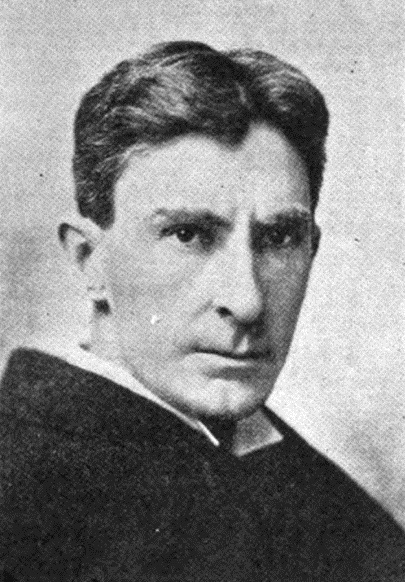
When I was writing “Dixon, Not Darwin,” about a viciously racist passage sometimes misattributed to Darwin but actually taken from Thomas F. Dixon Jr.’s novel The Clansman: An Historical Romance of the Ku Klux Klan (1905), I was going to invoke a further consideration to demonstrate that Darwin was not the source. It was hardly necessary, of course: the passage clearly appears in Dixon’s novel and not in any of Darwin’s works or letters, the passage is more overwrought and purple than anything in Darwin, and anyhow Darwin was remarkably progressive for his time on matters of race, as Adrian Desmond and James Moore document extensively in their Darwin’s Sacred Cause (2009). In the event, I decided that the consideration wasn’t conclusive and omitted any mention of it. But I hate to waste the research, so I’m writing about it now.
The passage from Dixon (above) begins, “Since the dawn of history the Negro has owned the Continent of Africa—rich beyond the dream of poet’s fancy, crunching acres of diamonds beneath his bare black feet.” Dixon liked the metaphor enough to include it also in The Flaming Sword (1939), his last novel: “The Negro from whom our slaves descended has lived on the continent of Africa, the richest and most wonderful division of land of the earth, since the dawn of history, crunching acres of diamonds beneath his feet. Yet he never picked one up from the dust until a white man showed him its light.” (These sentences occur in a tirade that Tom Collier, “the patriarchal leader of the town,” delivers to Rex Weldon, the superintendent of the “Negro Schools of the County,” about W. E. B. DuBois: Dixon despised the great African American sociologist.)
The distinctive phrase “acres of diamonds” might ring a bell with you; it would certainly have rung a bell with Dixon’s readers. For it is the title of a famous speech—and later a famous essay—of Russell Conwell (1843–1925), the founder of Temple University in Philadelphia. The central theme of “Acres of Diamonds” was that there are opportunities all around waiting to be taken. The title comes from a metaphor in a story that Conwell supposedly heard while traveling in the Middle East, in 1869 or 1870. In the story, Al Hafed, after hearing of the value of diamonds, leaves his farm in search of the gemstones, but is unsuccessful, eventually drowning himself in despair. As the inheritor of his farm discovers, though, the object of his quest was right under his feet at home: under the farm were hidden “the most magnificent diamond mines in all the history of mankind.”
It seems clear that the passage from Dixon is alluding to the speech and essay of Conwell: in both, “acres of diamonds” is a metaphor for tragically unrealized opportunities. Moreover, Dixon, like Conwell, was a Baptist minister. And although their career paths were in different directions—after a varied career as a soldier, lawyer, journalist, and lecturer, Conwell was ordained in 1880 at the age of 37, and stayed in the ministry till the end of his life, while Dixon, after brief ventures into drama and politics, was ordained in 1886 at the age of 22 but resigned from the Baptist ministry in 1895 and stopped preaching in 1899 to become a full-time lecturer and writer—it seems reasonable to suppose that Dixon would have been attuned to a fellow Baptist minister’s contemporary speeches and writings.
Did Darwin know about “Acres of Diamonds,” as required by the misattribution? It’s unlikely, I think—but possible. The essay was first published in Gleams of Grace, a collection of Conwell’s sermons published in 1887, five years after Darwin’s death, so he wouldn’t have been able to read it. But Conwell reportedly delivered the speech over six thousand times, earning over eight million dollars from it by the end of his life. When did he start? There is a distressing lack of agreement about the first delivery of the speech: 1861? 1870? 1875? 1877? 1888? 1890? According to John R. Wimmer’s 1992 dissertation on Conwell, he may have delivered a recognizable precursor of the speech in 1870, although he claimed that he gave it first to a reunion of his Civil War regiment in 1873, and the actual title “Acres of Diamonds” probably arose in the late 1870s.
So Darwin was probably alive when Conwell was delivering “Acres of Diamonds” under that title—but there’s no indication that he would have heard about it. It’s hard to prove a negative, of course, but I couldn’t find any evidence that Darwin ever mentioned Conwell, ever attended a speech by him, or even ever had the opportunity to read about him in the newspaper. (Apparently Conwell wasn’t mentioned in the Times of London during the nineteenth century.) It’s nice to know, at least, that the ignorance wasn’t reciprocated. In a campaign biography of James G. Blaine, the Republican candidate for president in 1884, for example, Conwell refers approvingly to “the paths of exploration and speculation so fearlessly trodden by Darwin, by Huxley, by Tyndall, and by other living scientists of the radical and advanced type.”

